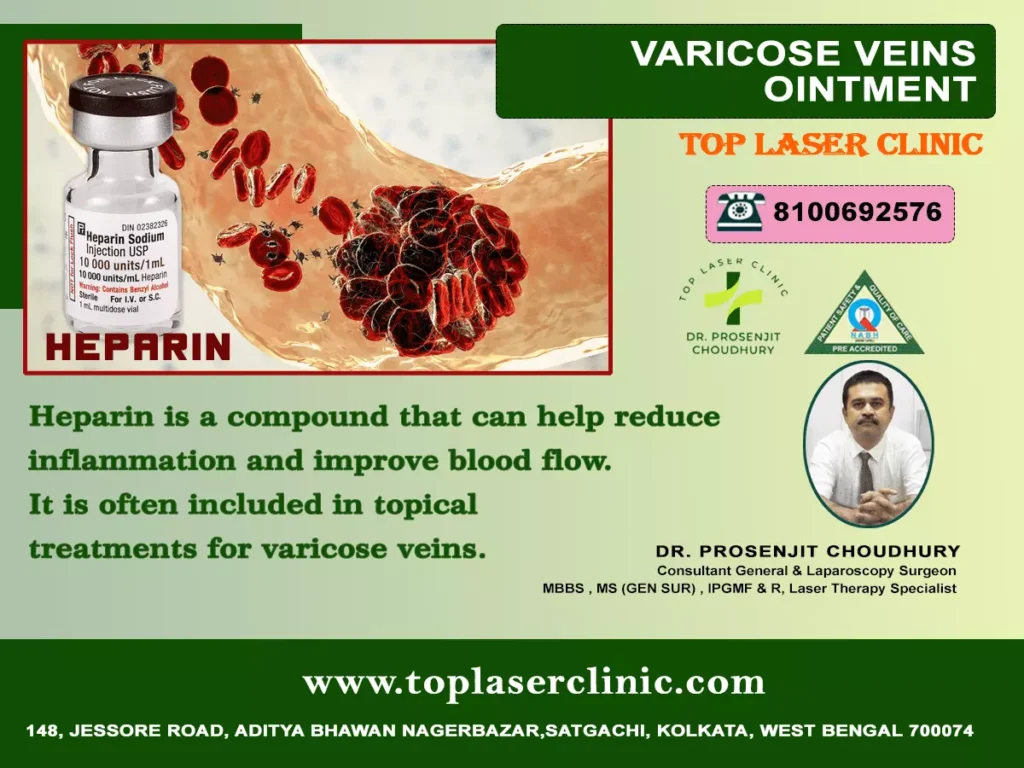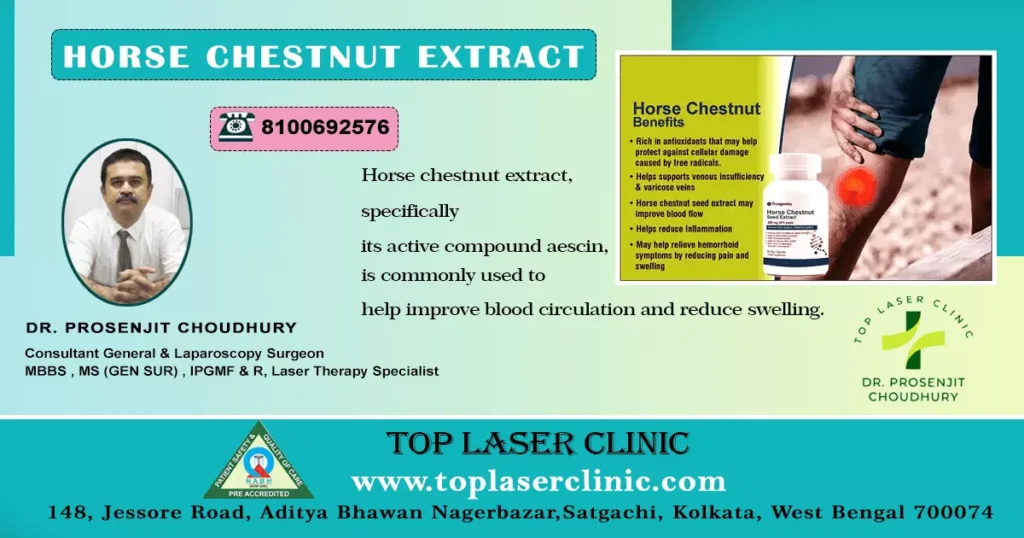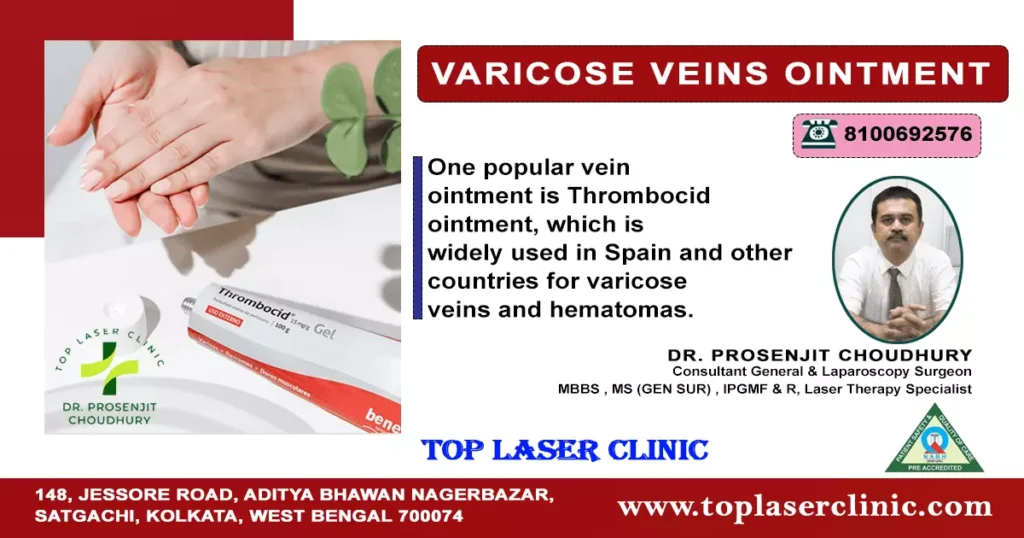
There are several over-the-counter and prescription ointments, creams, and gels available for the treatment of varicose veins and related symptoms.These topical treatments typically aim to relieve discomfort, reduce inflammation, and improve the appearance of varicose veins. If you’re considering using a varicose vein ointment or cream, it’s a good idea to consult with a healthcare professional first.
However, it’s important to note that topical treatments may provide temporary relief but are unlikely to eliminate varicose veins entirely.
Some common ingredients found in varicose vein ointments and creams
1. Heparin:
Heparin is a compound that can help reduce inflammation and improve blood flow. It is often included in topical treatments for varicose veins.
2. Aescin:
Aescin is a substance derived from horse chestnut seeds and is believed to have anti-inflammatory and vein-strengthening properties.
3.Witch hazel:
Witch hazel is known for its astringent and anti-inflammatory effects, which can provide relief from itching and discomfort associated with varicose veins.
4. Vitamin K:
Some creams contain vitamin K, which is thought to help improve the appearance of veins and reduce bruising.
5. Arnica:
Arnica is a plant extract that may have anti-inflammatory properties and could help alleviate pain and swelling.

6. Horse chestnut extract:
Horse chestnut extract, specifically its active compound aescin, is commonly used to help improve blood circulation and reduce swelling.
7. Essential oils:
Certain essential oils, such as chamomile, lavender, and cypress, are sometimes used in varicose vein creams for their potential calming and anti-inflammatory effects.
It’s important to keep in mind that the effectiveness of these topical treatments can vary, and they may not provide significant or lasting results for everyone.
For more severe cases of varicose veins or if you’re seeking more substantial and lasting results, medical treatments such as minimally invasive procedures or surgery might be recommended by a doctor. Always prioritize the guidance of a qualified healthcare provider when making decisions about treating varicose veins or any other medical condition.

One popular varicose vein ointment is Thrombocid® ointment, which is widely used in Spain and other countries for varicose veins and hematomas.
Thrombocid® ointment contains the active ingredient pentosan sodium polyphosphate, which helps to reduce inflammation and promote healing in the affected veins. Pentosan sodium polyphosphate is known for its ability to improve the elasticity of blood vessels and reduce the formation of blood clots.
Another varicose vein ointment that has been proven effective in treating varicose veins is polidocanol. Polidocanol is a sclerosant that has been used safely and successfully to treat varicose veins, oesophageal bleeding due to varices, intestinal vascular malformations, telangiectases, and venous malformations of the head, neck, and limbs. Polidocanol has the ability to cause thrombosis of the vessel, leading to the closure and shrinking of the varicose veins.
Daflon is a medication commonly used for the treatment of various vascular conditions, including chronic venous insufficiency (CVI) and hemorrhoidal disorders. Chronic venous insufficiency is a condition where the veins in the legs have difficulty returning blood to the heart, often leading to symptoms like varicose veins, leg swelling, pain, and discomfort.
Daflon contains a combination of two active ingredients: diosmin and hesperidin. These compounds are flavonoids, which are plant-based substances with potential antioxidant and anti-inflammatory properties. Daflon is believed to work by improving venous tone, increasing the strength and elasticity of blood vessels, and reducing inflammation.
For varicose veins and chronic venous insufficiency, Daflon may help alleviate symptoms such as leg pain, heaviness, and swelling. It can also potentially reduce the progression of the condition and improve overall venous function. However, it’s important to note that individual responses to medications can vary, and Daflon might not be suitable for everyone.
In Closing:
As with any medication, it’s crucial to follow your doctor’s recommendations and dosage instructions. They will be able to assess your specific condition, medical history, and other factors to determine whether Daflon is appropriate for you and what dosage would be best.
Additionally, lifestyle changes such as regular exercise, elevating your legs, wearing compression stockings, and maintaining a healthy weight can also play a role in managing varicose veins and chronic venous insufficiency. Always consult a healthcare professional before starting any new treatment.